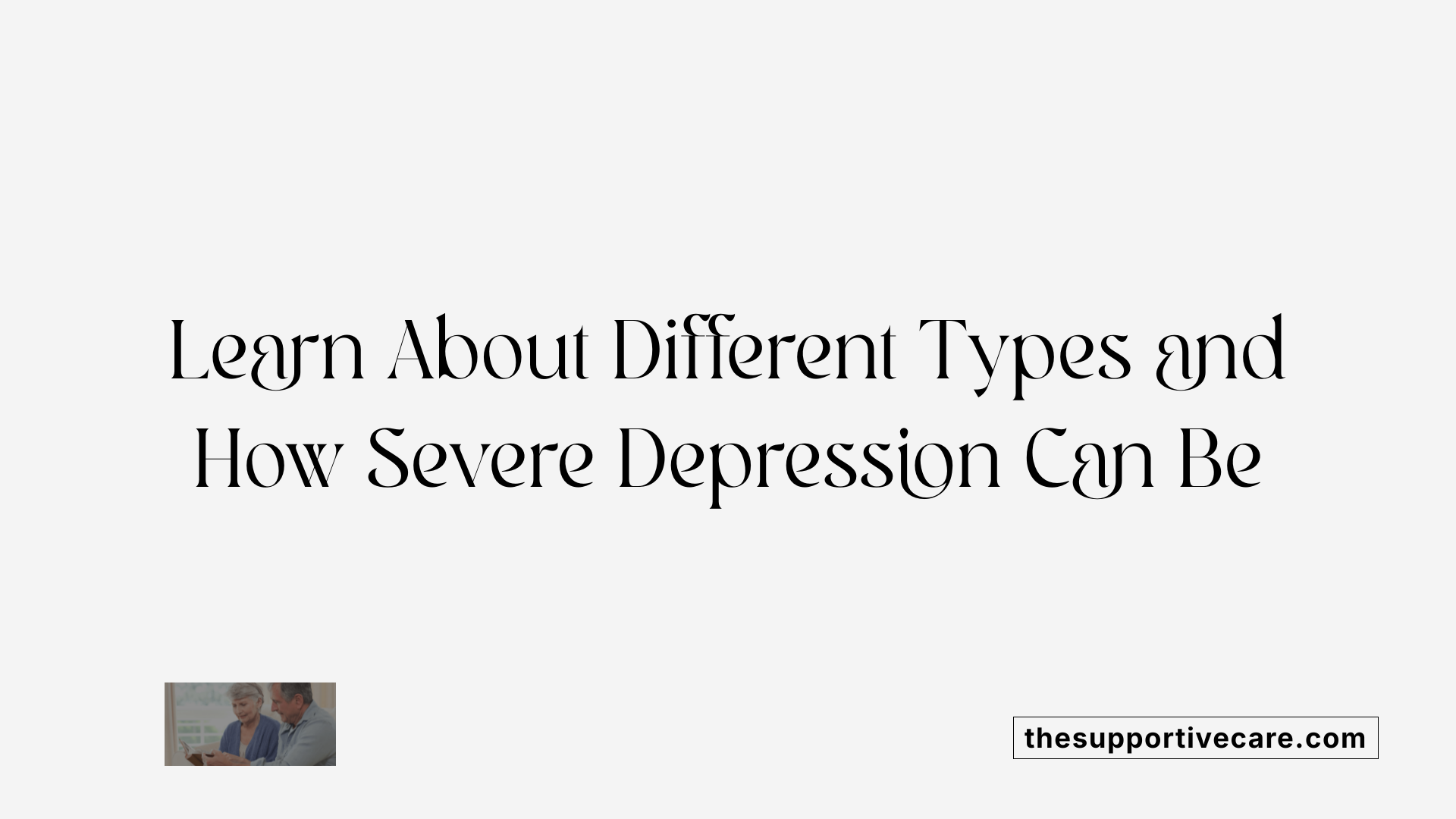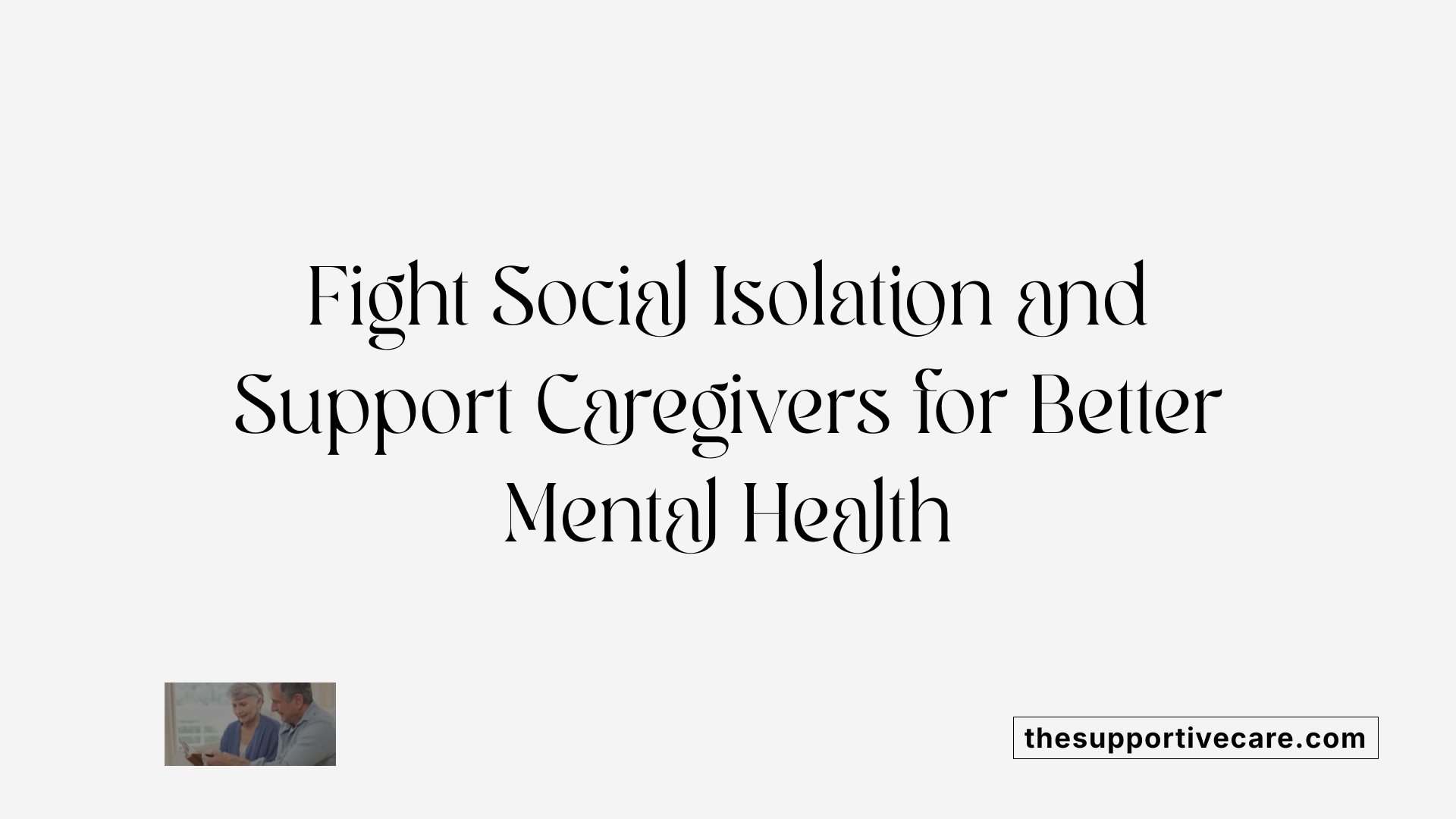Depression in Seniors: A Growing Concern
Depression among older adults is a serious and often overlooked mental health challenge. It is not a normal part of aging, yet many seniors suffer from it, frequently compounded by co-occurring conditions like substance use disorders. This article explores the signs of depression in seniors, the unique risk factors they face, and the comprehensive treatment approaches that can help address these complex needs.
Recognizing Depression in Older Adults: Signs and Symptoms

What are common signs of depression in seniors?
Depression in older adults often presents with several distinctive signs and symptoms. Common emotional symptoms include persistent sadness, feelings of hopelessness, irritability, and a noticeable loss of interest or pleasure in activities they once enjoyed. Seniors might also experience decreased energy levels and difficulties with sleeping, either insomnia or excessive sleepiness. Thoughts of death or suicide are unfortunately also common among depressed older adults.
Emotional and physical manifestations
Beyond these emotional symptoms, depression in seniors frequently manifests physically. Emotional numbness and a withdrawal from social interactions are common, as are physical complaints such as unexplained aches and pains. Behaviorally, older adults may show changes in appetite, neglect personal hygiene, or struggle with concentration and motivation.
Variability of symptoms across different cultures
It's important to recognize that depression symptoms may vary significantly across cultural backgrounds. Some seniors may express distress primarily through physical symptoms rather than openly discussing feelings of sadness or hopelessness. Awareness of these cultural differences aids in timely and accurate diagnosis.
Depression and dementia linkage
Depression can also be an early indicator of dementia in older adults and often occurs alongside conditions like Alzheimer’s disease. Detecting depressive symptoms early in the context of cognitive decline is crucial to managing both conditions effectively.
Recognizing these signs and seeking appropriate help can greatly improve older adults' quality of life and treatment outcomes.
Understanding Types and Severity of Depression in Seniors

What types of depression do older adults experience?
Older adults may experience several distinct types of depression, each presenting unique challenges and requiring specific approaches to care.
Major Depressive Disorder and Persistent Depressive Disorder
Major Depressive Disorder (MDD) involves at least two weeks of persistent low mood coupled with additional symptoms like feelings of worthlessness, sleep disturbances, and suicidal thoughts. Persistent Depressive Disorder, also known as dysthymia, is a chronic form of depression where symptoms persist for two years or longer, often with less severity than MDD but substantial impact on daily functioning.
Substance/Medication-Induced Depressive Disorder
Depression in seniors can sometimes stem from the use of medications or substances, such as alcohol or prescription drugs. This type manifests when depressive symptoms are directly linked to substance intoxication, withdrawal, or medication side effects, typically requiring targeted interventions addressing both the substance use and mood symptoms.
Depressive Disorder Due to Medical Conditions
Medical illnesses common in older adults—such as stroke, cancer, or chronic infections—can also induce depressive symptoms. This type highlights the need for careful medical assessments as physical health directly influences mental well-being, and managing the underlying medical condition can alleviate depressive symptoms.
Understanding these types of depression is vital because symptoms may vary in duration and intensity, requiring personalized diagnostic and treatment plans. Comorbidities, such as substance use disorders and chronic medical conditions, can further complicate the clinical picture and should be addressed comprehensively for effective recovery.
Risk Factors Contributing to Depression in Seniors

What are the risk factors for depression among older adults?
Depression in seniors is influenced by a variety of risk factors that often interconnect, increasing vulnerability to this serious mood disorder.
Medical Illnesses and Physical Limitations
Chronic medical conditions, such as stroke, cancer, and other disabling illnesses, significantly elevate the risk of depression in older adults. Functional limitations resulting from these illnesses reduce independence and can contribute to feelings of helplessness and sadness.
Social Isolation and Loneliness
Social isolation and loneliness are critical contributors to depressive symptoms. Approximately a quarter of older people experience these conditions, which can deepen hopelessness and exacerbate mental health issues.
Family History and Personal Depression History
A personal or family history of depression heightens susceptibility. Seniors who have experienced depression earlier in life or have relatives with mood disorders face an increased risk.
Stressful Life Events and Abuse
Older adults often face adverse life events such as bereavement, retirement, or loss of income. Additionally, abuse in its various forms—physical, verbal, psychological, sexual, financial, or neglect—affects roughly one in six seniors and is strongly linked to depression.
Relationship Between Alcohol Use Disorder and Depression
Alcohol use disorder (AUD) is both a risk factor and a complication of depression. Up to one-third of clinically depressed individuals engage in substance use, often as self-medication. AUD's depressive effects compound mental health challenges, increasing severity and complicating treatment.
Addressing these risk factors through supportive social connections, medical care, and behavioral interventions is essential to prevent and mitigate depression among seniors.
The Intersection of Substance Use Disorders and Depression in Older Adults
How do substance use disorders relate to depression in older adults?
Substance use disorders (SUD) and depression frequently co-occur in older adults, with an estimated 40-60% of individuals facing SUD also experiencing independent mood disorders such as major depressive disorder. This high comorbidity underscores how intertwined these conditions are in this population.
How do substances affect mood and mental health?
Substances, especially alcohol, play a critical role in mood regulation. Alcohol is a central nervous system depressant that initially may seem stimulating but ultimately exacerbates feelings of depression. This can lead to a vicious cycle where individuals use alcohol to self-medicate depressive symptoms, worsening their mental health over time.
What is the impact of intoxication and withdrawal on depressive symptoms?
Intoxication and withdrawal phases can both trigger or intensify depressive symptoms. These symptoms often persist for 3 to 6 months after abstinence, complicating recovery efforts. They range from normal sadness to clinical depression, significantly affecting concentration, motivation, and participation in treatment activities.
What is the role of alcohol as a CNS depressant?
Alcohol depresses the central nervous system, which can deepen a depressed mood and increase suicide risk among older adults. Its depressant properties not only impair brain function during use but also contribute to protracted depressive episodes during withdrawal and periods of sobriety.
Understanding this complex relationship highlights the importance of integrated treatment that simultaneously addresses substance use and depression in older adults to improve recovery outcomes.
Challenges Depression Poses to Recovery in Seniors with Substance Use Disorders
How do depressive symptoms affect treatment outcomes for seniors with substance use disorders?
Untreated depression significantly complicates recovery from substance use disorders (SUD) in senior adults. Depressive symptoms can impair cognitive functions, resulting in difficulties with concentration and memory. Such impairments often lead to missed appointments and poor adherence to treatment plans.
Furthermore, seniors experiencing depression may find it challenging to actively participate in group sessions or individual therapy, both crucial components of effective substance abuse treatment. Feelings of hopelessness and overwhelm can diminish motivation to maintain sobriety and engage with recovery programs.
These challenges collectively lead to poorer treatment outcomes. Research indicates that depressive symptoms not only hinder recovery but also increase the odds of relapse among seniors battling SUD. The risk of suicidality also rises considerably when depression goes untreated, posing a serious concern for this population.
Given these complex challenges, an integrated treatment approach that addresses both depressive symptoms and substance use concurrently is essential. Tailored interventions improve engagement, reduce relapse, and enhance overall prognosis for older adults managing these co-occurring conditions.
Comprehensive Treatment Services for Substance Abuse and Mental Health Issues
What are comprehensive treatment services for substance abuse and mental health issues?
Comprehensive treatment services are integrated programs designed to simultaneously address substance abuse and co-occurring mental health disorders such as depression and anxiety. These services focus on the whole person — combining medical, psychological, and social support to promote lasting recovery.
These treatment models typically include medical detoxification to manage withdrawal symptoms safely, followed by various therapeutic interventions. Individual and group therapies, including cognitive-behavioral therapy (CBT), motivational interviewing, and psychoeducation, help clients develop coping skills and challenge negative thought patterns.
Psychiatric evaluation and medication management are crucial, especially for clients with significant mood disorders. Antidepressants or other psychiatric medications may be prescribed alongside therapy to improve mood and engagement in treatment. Support for relapse prevention and life skills training, including stress management and social functioning, further enhance long-term recovery prospects.
Special consideration is given to seniors who face unique challenges such as physical health issues, medication sensitivities, social isolation, or cognitive decline. Treatment plans for older adults incorporate age-appropriate strategies and may involve specialized mental health resources to address dementia-related depression or other age-related concerns.
Crisis intervention resources are integral to comprehensive programs. These include suicide prevention lifelines, crisis counseling, and rapid response teams to manage acute episodes safely. Coordinated care ensures continuity between different services and helps address the complexities of dual diagnoses.
By integrating mental health and substance use disorder treatments, comprehensive services offer a holistic, personalized approach. This not only improves outcomes and reduces relapse but also supports clients’ overall well-being, especially among older adults who might otherwise be under-recognized and underserved.
Effective Approaches to Treating Various Forms of Addiction in Seniors
How do treatment services address various forms of addiction?
Treatment of addiction in seniors involves a comprehensive, multi-faceted approach tailored to the individual's needs and severity of substance use disorder (SUD). Behavioral therapies play a central role, with cognitive-behavioral therapy (CBT) helping individuals recognize and change patterns leading to substance use. Motivational interviewing encourages personal motivation and commitment to change, which is especially beneficial in older adults who may be ambivalent about treatment.
Medication-assisted treatments (MAT) are also essential, particularly for substances like opioids and alcohol. These medications, such as methadone, buprenorphine, and naltrexone, help manage cravings and withdrawal symptoms, improving the chances of sustained recovery.
Family and group therapies provide critical support networks. Engaging family members can improve understanding and support within the home environment, while group therapy fosters peer support, reduces isolation, and encourages shared experiences among seniors.
Treatment levels vary, ranging from outpatient programs suitable for mild to moderate cases, to more intensive inpatient or residential care for severe addiction or co-occurring disorders. This flexibility ensures that seniors receive appropriate care that matches the complexity of their addiction and any underlying mental health conditions.
Post-treatment support is crucial for long-term recovery. Aftercare programs, including sober living environments and ongoing participation in support groups, help seniors maintain sobriety and address co-occurring depression or anxiety often found in this population. This integrated focus on both addiction and mental health enhances recovery outcomes and reduces relapse risks.
Overall, addiction treatment for older adults is a coordinated effort that combines therapeutic interventions, medication management, and social support across various care settings to foster sustained recovery and improve quality of life.
Psychosocial Interventions That Relieve Depressive Symptoms in Seniors
What psychosocial interventions are effective for depression in seniors?
Several psychosocial interventions have proven effective in alleviating depressive symptoms among older adults. These therapies work by addressing the emotional and behavioral aspects of depression through supportive, structured approaches.
Cognitive-Behavioral Therapy (CBT) is a widely used method that helps seniors identify and change negative thought patterns and behaviors contributing to their depression. This approach empowers older adults to develop healthier coping mechanisms, improving mood and outlook.
Psychoeducation involves educating seniors and their caregivers about depression, its symptoms, and treatment options. This knowledge fosters understanding and reduces stigma, encouraging more active participation in care and adherence to treatment plans.
Motivational Interviewing enhances motivation and readiness for change by exploring personal goals and ambivalence about treatment. This client-centered counseling technique supports seniors in overcoming barriers to engagement with therapy and lifestyle modifications.
Behavioral Activation encourages seniors to increase participation in pleasurable or meaningful activities. By promoting engagement in rewarding experiences, this intervention helps counteract withdrawal and inactivity, common features of depression.
These psychosocial therapies, either individually or combined, effectively relieve depressive symptoms in older adults. Integrating them within comprehensive treatment plans supports sustained recovery and improved quality of life for seniors experiencing depression.
Medication and Professional Mental Health Support for Seniors with Depression
What is the role of psychiatric assessment in managing depression in older adults?
Psychiatric assessment is essential for accurately diagnosing depression in seniors and determining the most appropriate treatment plan. This evaluation includes understanding the severity of symptoms, ruling out medical causes, and identifying any co-occurring disorders such as dementia. Early involvement of mental health professionals allows tailored interventions and monitoring throughout recovery.
When is medication management necessary for depression in older adults?
Medication management becomes necessary when an older adult presents with significant depressive symptoms or has a diagnosed mood disorder. Antidepressants, particularly selective serotonin reuptake inhibitors (SSRIs), are commonly used as they can improve mood and facilitate recovery. However, medication decisions should be individualized and closely monitored by specialists due to the complex needs of this population.
What considerations are important regarding antidepressant use in seniors?
Older adults metabolize drugs differently, which may increase the risk of side effects and interactions. Pharmacokinetic changes require lower starting doses and careful titration of antidepressants. Additionally, seniors often take multiple medications, raising chances of drug-drug interactions that could affect efficacy or cause adverse events. Regular medication reviews and coordination among healthcare providers are vital.
How does the referral process support depression treatment for seniors?
Primary care providers or generalist clinicians should promptly refer older adults with moderate to severe depression or complex presentations to mental health professionals. This facilitates comprehensive diagnostic assessment, initiation or adjustment of antidepressant therapy, psychotherapy options, and ongoing monitoring for treatment response and safety. Integrated care models promote communication and coordinated support.
How are drug interactions managed in older adults receiving antidepressants?
Managing drug interactions involves thorough medication reconciliation, understanding the pharmacology of drugs prescribed, and recognizing potential adverse interactions. Clinicians monitor for symptoms of toxicity or decreased effectiveness, adjusting medications as needed. Patient education on reporting new symptoms or changes in other medications is also critical to minimize complications.
Together, these approaches ensure that older adults receive personalized, safe, and effective depression treatment through professional psychiatric care and appropriate medication management.
Prevention and Early Recognition Strategies for Depression in Older Adults
Why is early symptom detection important for depression in older adults?
Detecting depressive symptoms early in seniors is crucial because untreated depression can lead to severe impairments in daily functioning, increase the risk of chronic illnesses such as substance use disorder, and elevate suicide risk. Early recognition allows for timely intervention, which can reduce the duration and severity of depression and improve overall quality of life.
What lifestyle factors help prevent depression among older adults?
Maintaining an active lifestyle is a proven strategy to prevent depression. Physical activity improves mood and reduces feelings of hopelessness. A healthy diet supports brain health and emotional well-being, while adequate sleep helps regulate mood and cognitive function. Together, these lifestyle habits create a foundation for mental resilience in later life.
How does social engagement impact depression risk?
Social isolation and loneliness significantly increase the risk of depression in older adults. Engaging in community activities, volunteering, joining support groups, or participating in befriending initiatives can foster social connections that protect against depressive symptoms. These activities provide meaningful interaction, reduce feelings of isolation, and promote a sense of purpose.
Why is reducing stigma and promoting mental health awareness important?
Stigma surrounding mental illness in seniors often leads to underrecognition and undertreatment of depression. Promoting mental health awareness helps normalize conversations around emotional well-being, encouraging older adults to seek help early. Education tailored to seniors and their caregivers can dispel myths, improve understanding, and foster supportive environments.
Focusing on these prevention and early recognition strategies offers seniors a better chance for healthy aging and reduces the burden of depression on individuals, families, and healthcare systems.
Addressing Social Isolation and Supporting Caregivers to Improve Seniors' Mental Health

How does loneliness impact depression risk in older adults?
Social isolation and loneliness significantly increase the risk of depression among older adults. Approximately a quarter of seniors experience these feelings, which contribute to poor mental health outcomes. Factors such as bereavement, loss of income, retirement, and reduced social interactions further exacerbate this risk, making loneliness a major contributor to depressive symptoms in this age group.
What social activities and community support can help seniors?
Engaging in social activities plays an essential role in improving mental health and reducing depression among older adults. Community support groups, befriending initiatives, and volunteering opportunities create meaningful connections and combat feelings of isolation. These activities encourage participation, promote a sense of purpose, and foster peer support, all of which contribute to better emotional well-being.
Why is respite care and caregiver support important?
Supporting caregivers through respite care, education, and psychological assistance is crucial for sustaining the mental health of both caregivers and seniors. Caregivers often face significant stress, and adequate support helps prevent burnout and ensures consistent, quality care for older adults. Providing financial resources and access to counseling further strengthens the caregiving environment.
How can reducing abuse and neglect improve seniors' mental health?
Abuse and neglect—including physical, verbal, psychological, sexual, and financial abuse—affect about one in six older adults, greatly increasing the risk of depression and anxiety. Proactive measures to identify and reduce such abuse are vital. Ensuring safe and secure environments, raising awareness, and implementing protective policies contribute to improved mental health outcomes and overall well-being for seniors.
Policy Initiatives and Innovations to Enhance Mental Health Care Access for Older Adults

Expansion of Telehealth and Mobile Clinics
To improve mental health care access for older adults, policy efforts have prioritized expanding telehealth services and mobile clinics. Telehealth reduces barriers related to mobility and transportation, which are common challenges for seniors. Mobile clinics bring services directly into communities, offering tailored behavioral health care in familiar and accessible settings. These innovations increase engagement and retention in treatment.
Removing Barriers to Medication-Assisted Treatment
Medication-assisted treatment (MAT) is critical for managing substance use disorders and co-occurring mental health conditions among older adults. Policies focused on removing regulatory and systemic barriers help facilitate easier access to MAT. This includes simplifying prescribing regulations and expanding coverage under health insurance plans, thereby encouraging wider utilization and better management of mental health needs.
Training Providers in Structural Competency
Given the complex social determinants affecting older adults’ mental health, provider training now emphasizes structural competency. This approach equips healthcare professionals to recognize and address systemic issues—such as social isolation, financial insecurity, and discrimination—that impact seniors’ well-being. Enhancing provider awareness leads to more culturally sensitive and effective care delivery.
Community Partnerships and Crisis Response Systems
Building strong community partnerships between behavioral health providers, senior centers, and social services is essential. Such collaborations create comprehensive support networks and enable crisis response systems that divert nonviolent mental health emergencies from the criminal justice system to appropriate care settings. This community-oriented model improves treatment outcomes and reduces adverse events.
These policy and innovative care approaches represent a coordinated effort to meet older adults where they are, ensuring accessible, equitable, and high-quality mental health services tailored to their unique needs.
Integrating Behavioral Health Services with Consideration of Social Determinants for Vulnerable Seniors
Addressing housing, transportation, and financial insecurity
Many older adults face challenges that extend beyond direct health concerns, such as unstable housing, limited transportation options, and financial insecurity. These social determinants critically influence mental health outcomes and access to behavioral health services. Tailoring interventions to mitigate these factors can improve engagement and adherence to treatment for conditions like depression and substance use disorders.
Importance of culturally sensitive care
Cultural background shapes how depression and other mental health conditions manifest and are perceived among seniors. Incorporating culturally sensitive approaches ensures that symptoms are correctly identified and treatment aligns with the individual's values and beliefs. This approach enhances trust and effectiveness, particularly in diverse senior populations.
Equity-focused interventions
Older adults from marginalized communities often face compounded challenges due to systemic inequities. Equity-focused interventions prioritize removing barriers and promoting access to care through targeted outreach, comprehensive support services, and policies that address discrimination and stigma within healthcare settings.
Coordinated care models
Integrated care that combines medical, behavioral health, and social services fosters a holistic approach for seniors with complex needs. Coordinated care models facilitate communication among providers, streamline service delivery, and address mental health conditions alongside social determinants such as housing and financial support. This leads to better treatment outcomes and improved quality of life.
Implementing these strategies requires collaboration between healthcare systems, community organizations, and policymakers. By addressing social determinants and ensuring culturally appropriate, equitable, and coordinated services, we can enhance behavioral health care for vulnerable older adults and foster healthier aging.
Moving Forward: Enhancing Mental Health Support for Older Adults
Addressing depression in seniors demands a comprehensive understanding of its unique symptoms, risk factors, and challenges. Integrated treatment approaches that combine mental health and substance abuse care, psychosocial interventions, medication management, and social support systems are critical. Prevention through early recognition, lifestyle enhancements, and reducing social isolation can mitigate risks. Equally important are policy reforms and community-based innovations that improve access and equity in mental health services for older adults. Through continued efforts to raise awareness and expand resources, it is possible to improve the quality of life and mental well-being of seniors facing depression and co-occurring conditions.
References
- Chapter 1 - Managing Depressive Symptoms in Substance ...
- Depression and Older Adults | National Institute on Aging
- Depression & Substance Use Disorder
- Assessment of anxiety and depression among substance use ...
- Resources for Older Adults
- Mental health of older adults
- Substance Use Disorder (SUD): Symptoms & Treatment
- Transforming Mental Health And Addiction Services
- Addiction Treatment Methods | Evidence-Based Practices



































































































